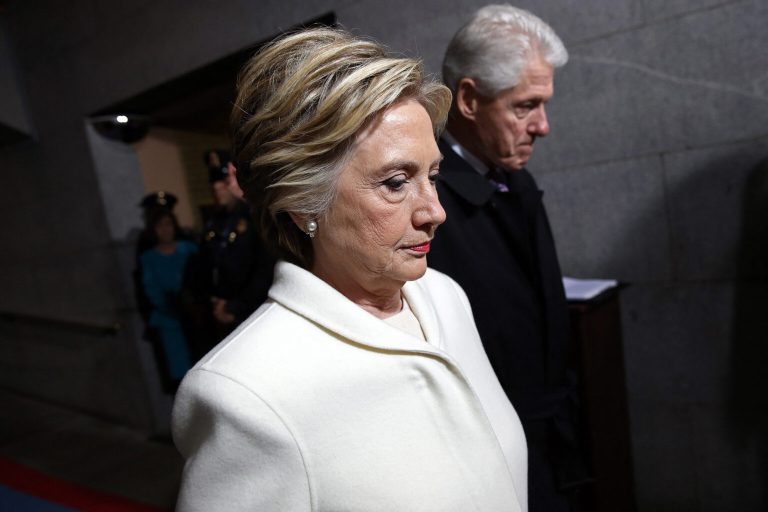
With foreign investors dominating rights issues in Nigeria’s capital market in the last two years, local investors have expressed concerns about likely effect on ownership structures of listed companies.
The investors, who expressed worry on the quantum of rights issues floated in the market between 2019 and 2020 totalling over N300 billion, cited influence of foreign investors in some multinational companies as major destabilising factor.
They claim shares rejected by Nigerian shareholders were allotted to technical partners that requested additional units, putting local investors in disadvantaged position.
This is because some local shareholders are financially handicapped owing to macro economic challenges while others were not convinced on the management of the affected companies as of the time of allotment.
Some of the companies recorded losses over the years while their shares in the stock market have been on decline over a long period of time because of failure of management to design products that would boost performance and profitability.
Existing shareholders are offered shares at prices less than market value, discouraging shareholders from picking their rights. Listing rules allow a core investor to hold up to a maximum of 80 per cent instead of the initial 70 per cent, a development Nigerian shareholders describe as detrimental to their investment. According to them, the situation may trigger change in ownership, which will adversely affect local shareholding.
Local investors are arguing against the backdrop of economic woes, which have continued to dampen investment drive and trigger apathy in the Nigerian capital market since the 2016 recession, now fuelled by the effect of COVID-19 lockdown.
The declining economic growth and woeful stock market performance as well as foreign exchange uncertainties have continued to scare investors from participating actively on the NSE.
Unfortunately, investors, who do not exercise their rights by buying the shares on offer, will lose money, as their existing holdings will be weakened.
But quoted companies need additional funds for expansion. Some of them, including banks, are planning to fund new growth sectors of the economy, which requires fresh capital in current environment, probably through rights from existing shareholders, first of all.
Rights issues are options given by a company to existing shareholders to buy shares of the firm.
It is also known as right of pre-emption; whenever a company wants to issue additional shares they are to first be offered to the existing shareholders.
Five of the companies dominated the rights issue boom, accounting for 94 per cent of N300 billion.
Among them are International Breweries Plc, which accounted for the highest amount of N165 billion on the sale of 18.3 billion units of ordinary shares of 50 kobo each at N9.00 per share offered to existing shareholders through a rights issue in December 2019.
The additional shares were offered on the basis of 17 new ordinary shares for every eight ordinary shares held as of November 6, 2019.
Lafarge Africa Plc followed with N89.2 billion raised by way of a rights issue of 7,434,367,256 shares at N12.00 per share, by issuing six new shares for every seven shares held by shareholders as of December 4, 2018.
The rights issue was undertaken to enable Lafarge Africa to restructure both its foreign and domestic loans as well as improve its working capital. The rights were completed in 2019. UPDC floated N15.962 billion rights while Fidson Healthcare Plc and Sovereign Trust Insurance Plc sourced N3 billion and N2.085 billion from the market.
In the same vein, Transcorp Hotels, a subsidiary of Transcorp Plc, recently received regulatory approval to raise N10 billion from its shareholders.
According to the company, the rights will be pre-allotted to existing shareholders on the basis of seven new ordinary shares for every 20 ordinary shares of 50 kobo each held as of July 13, 2020.
Similarly, AIICO Insurance Plc has submitted an application to the Nigerian Stock Exchange, seeking approval for 4.3 billion ordinary shares of N0.50 each, which it plans to list on the Nigerian bourse.
eTranzact International Plc, an electronic payment solutions provider, is to raise about N7 billion fresh funds from existing shareholders via a rights issue.
The money will be raised through the issuance of 4,666,666,667 shares of 50 kobo each at N1.50 per share in a ratio of 10 new shares for every nine shares already held.
Prestige Assurance is set to raise N6, 817,898,003 through the issue of 13,635,796,006 shares at N.50 kobo per share, to meet regulatory requirements and enhance its business operations.
Reacting to the development, President of Ibadan zone Shareholders Association, Eric Akinduro, said dominance of foreign core investors on rights issues would alter the ownership structure of some of these companies because of the financial strength of core investors.
“Retailed investors are likely not to take their rights not only because of financial constraints but also as a result of poor financial performance of these companies in the past.
“We also need to look into the rules given by the CAC on how to hold virtual meetings. There are some special resolutions, which cannot be approved during virtual meetings, but some of these companies are using this opportunity to pass several resolutions that are detrimental to shareholders.”
The President of Progressive Shareholders Association, Boniface Okezie, said this is not the right time for companies to float right issues, considering that many local shareholders face severe hardship due to persistent economic downturn worsened by the pandemic.
‘The effect here is that if local shareholders fail to exercise their rights, their investment will be diluted automatically and the company may decide to delist from the bourse since they now have controlling stake in the company.
“The regulators must stop approving rights at this time. I wonder why investors are not being protected because this is the time they need to come out and protect investors from further dilution of their shares and investments,” he said.
The Publicity Secretary of Independence Shareholders Association, Moses Ighrude, said it was unfortunate rights issues were happening at a time the economic situation is not favourable to local investors.
“Because of the COVID-19 lockdown, most shareholders do not have financial capacity to take up their rights and this will surely affect ownership structure of most companies on completion of the exercise.
“Regrettably, it will be in favour of core investors or some money bags to the detriment of Nigeria investors who have been with these companies over the years.”
The President of New Dimension Shareholders Association, Patrick Ajudua, said the inability of local shareholders to take up their rights was not good because it would make major investors accumulate more stake in the country.
He warned that core investors might decide to delist from capital market and pay peanut to minority shareholders because they had majority holding to sail through any such resolution.
He urged local shareholders to exercise their rights to avoid dampening their investment further and called for downward review of percentage holding for major shareholders from current 80 per cent to 60 per cent. (The Guardian)









85925 602423I got what you intend,bookmarked , very nice internet internet site . 125988
575683 555163Effectively written articles like yours renews my faith in todays writers. Youve written details I can lastly agree on and use. Thank you for sharing. 78660